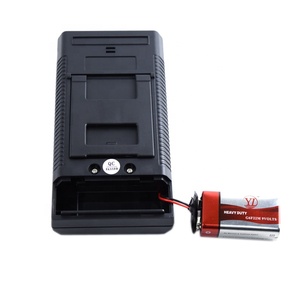Introduction to Radiation Measuring Instruments
Radiation measuring instruments are essential devices used to detect and quantify radiation levels in various environments. They play a critical role in fields such as nuclear medicine, environmental monitoring, and radiation safety. These instruments ensure that exposure to radiation remains within safe limits, protecting both human health and the environment. Understanding the different types, functions, and applications of radiation measuring instruments is vital for professionals in the industry.
Types of Radiation Measuring Instruments
Radiation measuring instruments come in various forms to cater to different applications and levels of radiation. The most common types include:
- Geiger-Muller Counters: Widely used for detecting alpha, beta, and gamma radiation; these counters provide audible and visual alerts when radiation is present.
- Ionization Chambers: Highly accurate for measuring higher levels of radiation, these instruments are typically used in industrial applications.
- Scintillation Detectors: Utilize scintillation crystals to detect and measure radiation; particularly effective for gamma rays and x-rays.
- Dosimeters: Personal devices worn by individuals to measure cumulative radiation exposure over time, essential for occupational safety.
Applications of Radiation Measuring Instruments
The versatility of radiation measuring instruments allows for a wide range of applications, including:
- Nuclear Power Plants: Continuous monitoring of radiation levels to ensure safe operations and comply with regulatory standards.
- Medical Facilities: Used in nuclear medicine and radiology to control and monitor radiation exposure to patients and staff.
- Environmental Monitoring: Assessment of natural background radiation and contamination levels in various ecosystems.
- Industrial Radiography: Ensuring safety standards are met during the inspection of materials using radiation technologies.
- Emergency Response: Essential tools for first responders to assess radiation levels in hazardous scenarios, ensuring public safety.
Features and Advantages of Radiation Measuring Instruments
Radiation measuring instruments are designed with several features that enhance their functionality and ease of use, offering a variety of advantages:
- High Sensitivity: Most instruments are equipped with advanced sensors that provide accurate readings even at low radiation levels.
- Portability: Compact designs allow for easy transportation, making them suitable for fieldwork and diverse environments.
- Data Logging: Many devices include data storage capabilities, enabling users to track radiation levels over time for trend analysis.
- User-Friendly Interfaces: Intuitive displays and controls make them accessible for users with varying levels of expertise.
- Robust Durability: Built to withstand harsh conditions, these instruments are often waterproof and shock-resistant, ensuring reliability in all environments.





























































































































































































































